Politics
Maratha Quota Row: State Govt Calls For All-Party Meeting; Bandh in Thane Today – News18

[ad_1]
The BJP-Shiv Sena-led government in Maharashtra has called for an all-party meeting in Mumbai on Monday to address the Maratha reservation issue, said Maharashtra Deputy Chief Minister Ajit Pawar.
Meanwhile, the Sakal Maratha Morcha — backed by Sambhaji Brigade — called for a ‘bandh’ in Maharashtra’s Thane city to condemn police’ lathi-charge action against the Maratha quota agitators in Jalna district. Local leaders from the opposition parties in the state have declared support to the bandh.
Pawar, while addressing a rally in Maharashtra’s Kolhapur said that several people from the Maratha community were rich but many were poor and needed help. “While giving the reservation to the Maratha community, it must be ensured that Other Backward Classes are not affected. Only discussions and meetings will solve this issue,” he said.
“An all-party meeting is called in Mumbai on Monday to discuss the quota issue,” Pawar noted.
According to a Hindustan Times report, the face of the protest, Maratha activist Manoj Jarange — who has been on a hunger strike for the last 13 days — has given up on water and intravenous (IV) fluids. He has been on the strike demanding Kunbi status, which effectively means OBC quota, for all Marathas.
Latest Updates
– OBC Reservation to Remain Untouched: Home Minister Devendra Fadnavis
Maharashtra Home Minister Devendra Fadnavis said that the state government will not take any steps to impinge on the reservation of OBCs, adding that, the OBC reservation will remain untouched.
“Today’s meeting is to build consensus on the Maratha reservation,” Fadnavis said. He added that there is no intention to pit two communities against each other.
– Police Detains Some Protestors, Latter Claims Even BJP Supports Bandh
The police have detained some of the protestors and have taken them to the Thane police station. Meanwhile, the protestors have claimed that all leaders from NCP, Shiv Sena (UT) and even BJP are supporting the bandh, it is only the Eknath Shinde faction that has not supported them.
– Protestors Demand Shutting of Shops, Ask Auto Drivers to Stay Off Road
Protestors have asked shops to be shut for the bandh today in Thane while also asking auto drivers to stay off the road. Police personnel have been deployed at different locations.
– All Party Meeting Called by State Govt
Deputy Chief Minister Ajit Pawar said that an all party meeting has been called in Mumbai to address the Maratha quota row.
He said that several people from the Maratha community were rich but many were poor and needed help.
– Sakal Maratha Morcha Calls for Thane Bandh Today
Sakal Maratha Morcha — backed by Sambhaji Brigade — called for a ‘bandh’ in Maharashtra’s Thane city to condemn police’ lathi-charge action against the Maratha quota agitators in Jalna district. Local leaders from the opposition parties in the state have declared support to the bandh.
At a meeting of the opposition parties on Saturday, local leaders declared their support for the bandh and appealed to citizens of Thane to participate in it.
The NCP (Sharad Pawar faction) city unit president Suhas Desai, his Shiv Sena (UBT) counterpart Pradeep Shinde, MNS leaders Ravindra More, Avinash Jadhav, Maratha Kranti Morcha’s city chief Ramesh Ambre and Congress’ city president Vikrant Chavan attended the meeting.
– Five-Member Delegation to Hold Talks With Maha CM
In the meantime, a five-member delegation left for Mumbai to hold talks with Maharashtra Chief Minister Eknath Shinde.
The five-member delegation which included Shiv Sena (Eknath Shinde faction) leader Arjun Khotkar, divisional commissioner Madhukar Rajeardad, the sarpanch of Antarwali Sarati village and two quota activists flew to Mumbai from Aurangabad airport in the evening, Khotkar told PTI.
The state government on Thursday issued a Government Resolution (GR) saying that Kunbi caste certificates would be issued only after the Maratha community members from the Marathwada region provide genealogical records from the Nizam era. The region was once a part of the Nizam-ruled Hyderabad state
What Happened? What’s The Protest About? | All You Need to Know
The protestors, spearheaded by Manoj Jarange, had been staging a hunger strike demanding reservation for the Maratha community at Jalna since August 29. The reservation in jobs and education provided by the state government to the Maratha community was quashed by the Supreme Court in May 2021, citing the 50 per cent ceiling on total reservations among other grounds.
Following this on September 1, the protest turned violent as protestors resorted to stone-pelting, leaving at least over 40 police officers injured. Police used lathi-charge to disperse the crowd and even fired teargas shells at a mob at Antarwali village in Dhule-Solapur.
Police had booked over 360 persons in the matter. A senior police official said, “An offence was registered at Gondi police station in Jalna against 16 agitators, who have been identified, and around 350 others for their involvement in violence.”
The case was filed under Indian Penal Code (IPC) sections 307 (attempt to murder), 333 (voluntarily causing grievous hurt to deter public servant from his duty), 353 (assault or criminal force to deter public servant from discharge of his duty) and others, he said, PTI reports.
In the protest violence — other than the injured police officer — some private vehicles and at least 15 state transport buses were vandalised and torched in the violence that broke out during the protest.
(With inputs from Yesha Kotak)
Featured
Supreme Court Hears Defense of Electoral Bond Scheme’s Legality in India – Flaunt Post
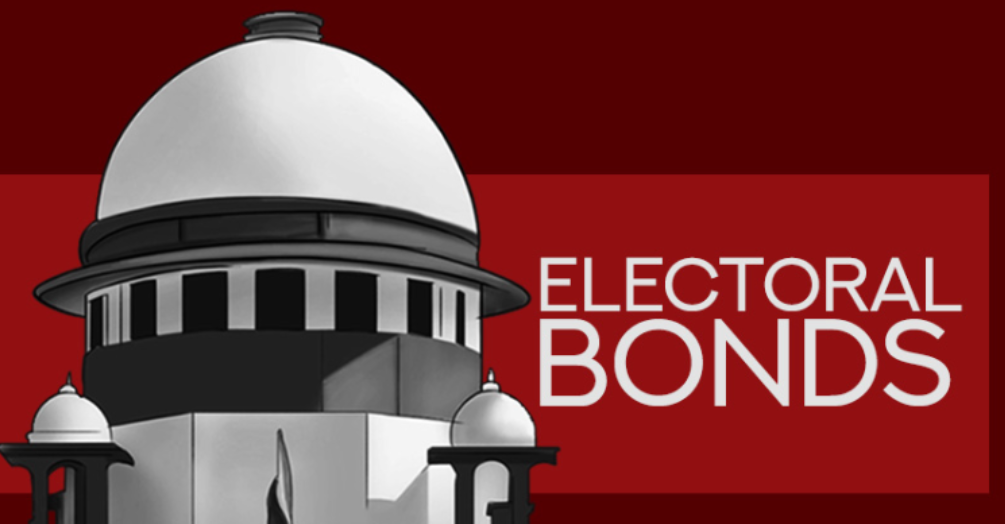
The Union government has vigorously maintained the legality of the Electoral Bond (EB) programme in a major legal struggle before the Supreme Court of India, stressing that it does not infringe upon any recognised rights or constitutional principles. In advance of a critical hearing chaired by Chief Justice D. Y. Chandrachud on October 31, Attorney General R. Venkataramani presented the government’s position. The hearing is intended to address the dispute surrounding this manner of political party funding.
The government contends that voters do not have a fundamental right to know the sources of political money, which brings us to the crux of the issue: transparency in political funding. Venkataramani asked the Supreme Court to hold off on examining issues of policy pertaining to the control of election bonds. He highlighted the Supreme Court’s 2003 ruling in the People’s Union for Civil Liberties case, which distinguished the right to know a candidate’s criminal history—which is essential for an informed voting process—from the current case to highlight the point that judicial review is not intended to criticise state policies or suggest substitute solutions. The government’s stance is dependent on multiple crucial arguments:
- No Violation of Established Rights: Venkataramani argued that the EB system does not violate any established rights because it protects contributors confidentially, encourages clean donations, and guarantees tax compliance. He emphasised that legislation cannot be declared unconstitutional just because it fails to acknowledge a hypothetical right or expectation and that there is no such thing as the right to know everything for any purpose. Consequently, neither existing rights nor constitutional prohibitions are violated by the EB programme.
- Judicial Review’s Role: The Attorney General stressed that the goal of judicial review is to determine if governmental measures violate preexisting rights rather than to criticise them. He proposed that the court should not get involved in complicated cases that call for lengthy parliamentary discussions, but should only hear cases involving clear violations of fundamental norms.
- Parliamentary Debates: Venkataramani recommended that the Supreme Court consider the parliamentary discussions around the issue. In keeping with the idea of the separation of powers, he emphasised that even in cases where the court recognises a new feature as belonging to a right, the investigation and assessment of the matter should be left to public and parliamentary debates.
Through the EB system, people and organisations can buy electoral bonds to provide to political parties. The goals of this system are to protect the privacy of contributors, promote accurate contributions, and guarantee tax compliance. The government presents a different strategy for political fundraising and claims that it does not infringe upon any rights that are already in place. As this legal dispute develops, significant issues are brought up regarding the proper ratio of openness to privacy in political fundraising as well as the judiciary’s responsibility in electoral-related concerns. The future of the electoral bond system and its place in India’s democratic environment would be greatly affected by the Supreme Court’s upcoming ruling.
Featured
ED’s “Red Rose” in Rajasthan: Political Turmoil Ahead of Assembly Elections – Flaunt Post
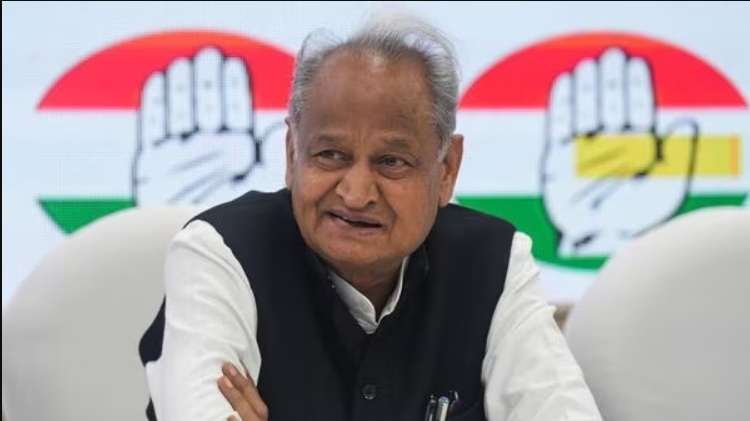
The Enforcement Directorate (ED) has recently used its investigative powers in Rajasthan’s dynamic political environment, causing a great deal of turmoil shortly before the state’s legislative assembly elections. Some have referred to these actions—which are a component of multiple FEMA investigations and money laundering probes—as “ED’s Red Rose,” implying that they may be politically motivated.
Vaibhav Gehlot, the son of Rajasthan’s Chief Minister Ashok Gehlot, received an order from the ED on Thursday (26/20/23) as part of their continuing investigation. Meanwhile, the investigating agency carried out raids on the homes of the Congress party’s state president, Govind Singh Dotasara, in Sikar and Jaipur. These steps are part of a larger investigation into possible money laundering linked to a case of allegedly leaked exam papers in Rajasthan, which is preparing for important elections for its legislative assembly. In addition, the investigative operations of the ED have not only generated publicity in Rajasthan but have also sparked political unrest. Chief Minister Ashok Gehlot quickly blamed the Bhartiya Janata Party (BJP), asserting that these kinds of ED operations are typical in states before elections. He made references to examples of the same acts taken in other states, such as Chhattisgarh, Karnataka, and Himachal Pradesh, suggesting a pattern of political interference.
Ashok Gehlot expressed his worries on a well-known microblogging site, claiming that the ED’s actions are driven by politics. He commented on the irony of the ED conducting raids the next day, targeting leaders and figures in his party, after launching welfare schemes for women in Rajasthan the day before. Gehlot emphasised the idea that these moves are intended to undercut the advantages that Congress is providing to the state’s poor, farmers, and women. He expresses confidence in the Congress’s capacity to win the upcoming election despite the alarming environment created by the ED’s actions. Gehlot provided statistical evidence to support his claims, pointing out that there has been a noticeable surge in the quantity of ED searches and charge sheets submitted in recent times, which would suggest a change in the agency’s operations.
Omprakash Hudla, an Independent MLA and a Congress candidate running for the Mahua assembly seat had his home investigated by the ED. This action was a component of the continuing investigation into possible money laundering linked to the matter of the alleged paper leak involving the Rajasthan Eligibility Examination for Teacher 2021. Congress supporters have protested by conducting sit-ins in Sikar and Jaipur as a result of these activities, openly expressing their dissatisfaction and criticising Prime Minister Narendra Modi.
The events that are taking place in Rajasthan highlight how closely law enforcement and politics are related, especially when elections are approaching. Due to ED’s actions, which are sometimes referred to as “ED’s Red Rose,” political rivalry and tensions have increased, with the ruling party accusing the opposition of interfering with politics. These developments are expected to have a significant impact on the political discourse and voter attitude in Rajasthan as the state prepares for the legislative assembly elections, which are set for November 25 and will feature a vote counting on December 3. The course that the state’s government and policies take will ultimately depend on the results of these elections.
Featured
PDA Takes Center Stage: Akhilesh Yadav Hints at Independent Path Amidst Alliance Uncertainty – Flaunt Post
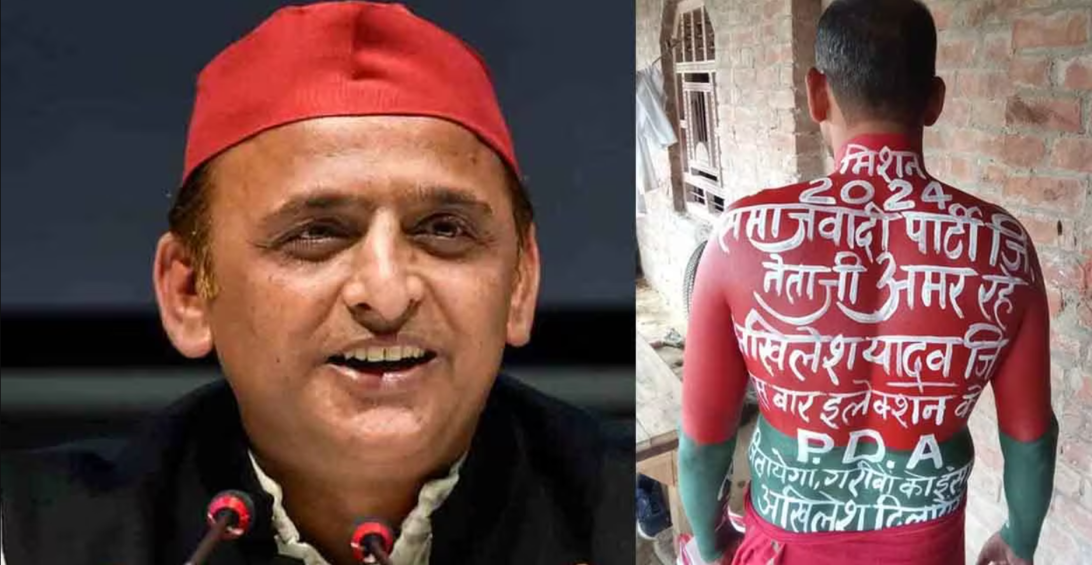
The continued existence of the alliance in India is in danger due to a verbal clashing match between the leaders of the Samajwadi Party and the Congress over seat distribution, which is currently raging. In a recent social media post, SP Chief Akhilesh Yadav made a key indication of the alliance’s diminishing influence by alluding to the 2024 Lok Sabha elections while noticeably excluding the INDIA alliance.
The Congress’ unexpected decision to not give any seats to its INDIA ally in the Madhya Pradesh assembly elections exposed the disparity between these two political groups. The Samajwadi Party said that they had been cheated out of seats in the Assembly elections by the Congress and felt deceived. Akhilesh Yadav and the Congress have responded to this with bitter criticism, which has resulted in both parties running candidates against one another in 18 of the state’s constituencies.
Recent actions by Akhilesh Yadav, including a calculated and symbolic social media post, have caused serious concerns about the alliance’s future. An image of a Samajwadi Party worker with the party’s emblematic red-and-green colours painted on his back is featured in the post. This artwork has a strong message that goes with it: “Mission 2024. May the memory of Netaji (Mulayam Singh Yadav) endure eternally. “PDA” will stand for winning the next election. Akhilesh Yadav is dedicated to providing the impoverished with justice.”
The post’s mention of “PDA” is noteworthy. In the 2024 Lok Sabha elections, Akhilesh Yadav has been loud in highlighting the importance of the PDA in defeating the BJP-led National Democratic Alliance (NDA). The acronym stands for Pichde (backwards), Dalits, and Alpasankhyaks (Minorities). Akhilesh Yadav seems to be indicating that he plans to run for office on his own in the next elections, not depending on the contentious alliance with the Congress, by repeating this phrase and its meaning.
With the announcement of the Congress’s Madhya Pradesh candidate list, tensions between the Samajwadi Party and the Congress reached a breaking point. Akhilesh Yadav suggested that the Samajwadi Party might not have been as open to the INDIA bloc if they had known the alliance did not extend to the state level. He further accused the Congress of fooling other parties. The INDIA bloc, according to the Congress, is mostly in favour of central-level politics with an emphasis on the Lok Sabha elections.
Akhilesh Yadav, who was clearly unhappy, went on criticising the Congress and questioned who would support them if they carried on acting in this way. He continued by pleading with the Congress not to betray the Samajwadi Party and asking them to be clear about their objectives with the coalition. Akhilesh Yadav mentioned the party’s recent endorsement of a caste census in a final jibe at the Congress, saying it’s amazing how the party now supports it. He emphasised that the Congress now seemed to understand the need to win over backward castes and tribes when earlier it had been reluctant to share caste data.
To sum up, there appears to be a widening divide between the Samajwadi Party and the Congress, as seen by Akhilesh Yadav’s recent social media post and his increased focus on the ‘PDA’ concept. Their political partnership’s future is still up in the air, and it appears that Akhilesh Yadav is ready to go it alone in the next Lok Sabha elections by enlisting the help of the marginalised communities that make up the ‘PDA.’ The political landscape in India may be significantly impacted by this event as parties realign and adjust their strategies.
-

 Featured2 years ago
Featured2 years agoOnline Threats for Jewish Students in Cornell University – Flaunt Post
-
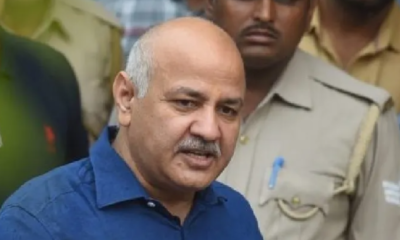
 Featured2 years ago
Featured2 years agoSupreme Court Delays Verdict in Manish Sisodia’s Corruption Case, Legal Battle Continues – Flaunt Post
-

 Entertainment1 year ago
Entertainment1 year agoSamantha Gabronino, Katwalk Doll Queen, Wins Miss Freedom of the World Grand Prix Title
-

 Featured1 year ago
Featured1 year agoSerena Novikov: Modeling Success in the Digital World
-

 Sports2 years ago
Sports2 years agoWATCH: Virat Kohli Shakes A Leg On ‘Lungi Dance’ Song During India Vs Sri Lanka Asia Cup 2023 Super 4 Match
-
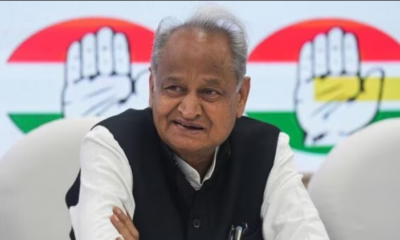
 Featured2 years ago
Featured2 years agoED’s “Red Rose” in Rajasthan: Political Turmoil Ahead of Assembly Elections – Flaunt Post
-

 Featured2 years ago
Featured2 years agoPDA Takes Center Stage: Akhilesh Yadav Hints at Independent Path Amidst Alliance Uncertainty – Flaunt Post
-

 Entertainment10 months ago
Entertainment10 months agoBillie Eilish: Redefining Music, Fashion, and Activism for a New Generation


